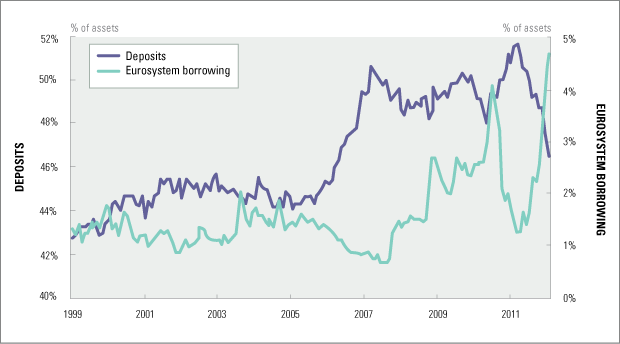When Fundamentals No Longer Apply, Review the Fundamentals
by Eric Sprott & David Baker
April 27, 2012
This may not come as a surprise, but we're still not seeing it. We're not seeing a US recovery.
Here we are, well into 2012, and the fact remains that the US housing situation is still a bust. There is simply no housing recovery happening in the United States. US New Home Sales fell for the fourth time in a row month-overmonth in March, representing a seasonally-adjusted annual rate of 328,000, down from 353,000 in February.1 Do you know what the annual rate of New Home Sales was back in 2006? About 1.21 million.2 No recovery there.
Same goes for US Existing Home Sales, which fell unexpectedly by 2.6% in March to an annual rate of 4.48 million units.3 Again - would you care to know where they were in the same month back in 2006, before the financial system fell apart? Approximately 6.92 million units.4 No recovery there either.
Then there's unemployment. Judging by all the recent earnings-release cheerleading, March's jobs numbers seem to have been forgotten, but they were plainly weak. The US Labor Department showed US hiring slowing to a mere 120,000 new jobs in March, below expectations of 200,000+.5 That's not a recovery. That's simply weak data.
Same goes for the most recent jobless claims numbers, which have been running above 380,000 for the last two weeks, above the 375,000 threshold that supposedly signals future unemployment increases.6 Again - this is not positive data, this is weak data. How high will it have to go before the economists admit that it's weak? 400,000? 425,000? We're asking - we'd like to know.
Then there are US tax receipts, which continue to point in the same direction. If the US is recovering so strongly, then why are employment tax receipts only up 2%? ($484 billion fiscal year-to-date as of March 2012 vs. $475 billion over the same period to March 2011).7 A 2% increase is explainable by inflation alone, which was last reported running at 2.7% according to the Bureau of Labour Stastics.8 Shouldn't the tax receipts be much higher than that? Wasn't unemployment down so far this year? As the Associated Press plainly states, "The unemployment rate has fallen to 8.2% in March [2012] from 9.1% in August [2011]. Part of the drop was because people gave up looking for work. People who are out of work but not looking for jobs aren't counted among the unemployed."9 Oh! Sorry,… now the numbers make more sense. There hasn't been any net new employment at all. Question: if everyone "gives up" looking for work next week, will the US unemployment rate go to zero? We're asking - we'd like to know.
Other economic indicators exhibit the same downward momentum that the pundits are loath to acknowledge. For example, the Economic Cycle Research Institute's (ECRI) Weekly Leading Indicator index, which had been rising from its 2011 lows earlier this year, has resumed its downtrend in April.10 More recently, US Durable Goods Orders were revealed to have dropped 4.2% in March, representing the largest decline since January 2009.11 To top it all off, China's most recent Purchasing Managers Index (PMI) indicated that China's manufacturing activity has now been in contraction for six months in a row.12
FIGURE 1: SPANISH BANKS - DEPOSIT AND EUROSYSTEM FUNDING (% OF TOTAL ASSETS),
1999 - FEB 2012

Note: Deposits of domestic ex credit institutions in Spanish MFIs. Eurosystem borrowing Eurosystem funding via Open Market Operations Source: Bank of Spain, ECB and Citi Investment Research and Analysis
Meanwhile, the situation in Europe continues to worsen. There's no point in mincing words: Spain is a complete disaster. This past week, the Spanish government managed to pull off two separate bond auctions, only to have the yield on their 10-year government bond shoot right back up the moment the second auction closed. Everyone's nervous because the Spanish banking system is up to its eyeballs in approximately €143.8 billion worth of delinquent loans, and the private sector is unwilling to lend Spanish banks the money to weather the potential write-downs.13 As we've seen before, the real culprit plaguing the Spanish banks is customer deposit withdrawals. It is estimated that €65 billion of deposits left Spanish banks this past March alone.14 People are taking their money out of the Spanish banking system, and without the help of the generous European Central Bank (ECB), the Spanish banks would likely be in a full collapse today (see Figure 1).15 As it stands, the Spanish banks have now borrowed a massive €316.3 billion from the ECB in order to meet the withdrawals and maintain the illusion of solvency.











